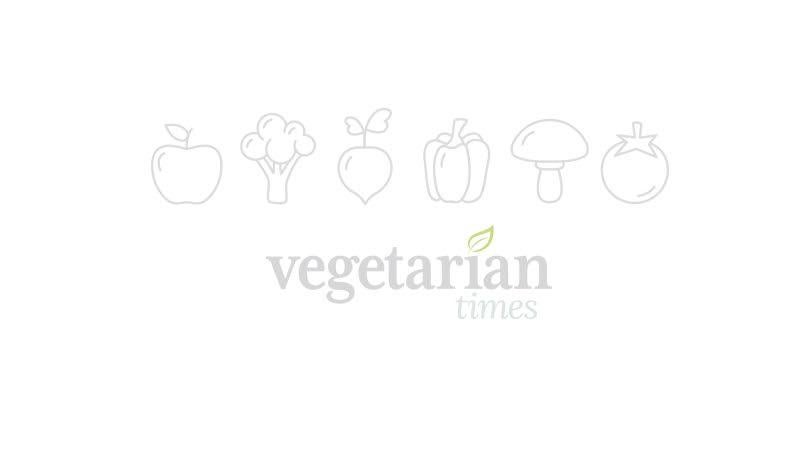Ask the Naturopaths: Keeping Parents Healthy

Q: Mother’s Day always fills me with love—and anxiety. Although my 63-year-old mom seems to be in good health, heart problems run in our family. But she’s on hormone replacement therapy, walks regularly and eats a plant-based diet— so am I just being a worrywart?
A: Not at all. A woman’s risk of heart disease increases with age. And that threat is widespread: One in three women has some form of cardiovascular disease (CVD), according to the American Heart Association. Also, although hormone replacement therapy (HRT) has other potential benefits, recent studies have shown that it doesn’t protect women from CVD—worse, it may even increase the risk. We’d suggest that your mom talk to her doctor about whether she should stay on it. She should also have a thorough annual physical exam, including blood sugar and cholesterol tests. And because of the family history of heart disease, we’d recommend an exercise stress test, or treadmill test, to help determine how well her heart handles physical work.
Q: Are there any nutritional supplements that I should encourage her to take?
A: Quite a bit of research has been done on how nutrition affects heart health. Most famously, Dean Ornish, MD, has shown that a diet that’s very low in fat and very high in plant foods—fruits, vegetables, whole grains—can help prevent and reverse CVD. A number of studies have also identified specific nutrients that contribute to heart health. First of all, almost everyone should take a daily multivitamin/mineral.
The beauty of a multi is that with one pill you get many nutrients that are helpful in preventing CVD, particularly folic acid, B6 and B12—which vegetarians can run low on since animal products are the only food source of B12. Low levels of these vitamins have been linked to high levels of homocysteine, an amino acid thought to contribute to CVD. Your mom should be sure to get the recommended dietary allowance (RDA) of B12, since the body’s ability to absorb it tends to decrease with age. We usually recommend that women and men over 50 get at least 2.5mcg daily through food or supplements. Essential fatty acids—especially omega-3s—and the antioxidant coenzyme Q10 (known as CoQ10) also promote a stronger heart. Taking omega-3 supplements increases the heart’s ability to roll with life’s punches—beating slower or faster as needed—according to a report in the April 2005 issue of Chest.
Omega-3s are found in flaxseeds, soy and flaxseed oils, walnuts and dark leafy greens. As for CoQ10, our bodies manufacture less of it as we age, so its heart-strengthening benefits likely diminish. If your mom is taking one of the cholesterol-lowering statin medications (such as Levacor), she should talk to her doctor before taking CoQ10, as there’s evidence that statins may interfere with CoQ10 production. Finally, magnesium (found in whole grains, tofu, spinach, sunflower seeds, almonds, beans—and even chocolate!) may also be a potent heart helper. In women 45 and older, recent research associated lower levels of magnesium with higher levels of C-reactive protein, a substance that can significantly increase the risk of stroke. As a bonus, there’s also evidence that it can help bones. The RDA for magnesium in women over 30 is 320mg a day.
Q: With Father’s Day around the corner, I would like to help my dad get back on track with his health. He’s 66 and was recently diagnosed with an enlarged prostate. Are there any foods or supplements that he should take, or avoid?
A: Your father’s enlarged prostate is known medically as benign prostatic hyperplasia (BPH). For years, many men reported benefits from taking the herb saw palmetto to relieve common BPH symptoms, such as frequent, urgent urination (or sometimes, ironically, the inability to urinate). However, a new study published in the February 9, 2006 issue of the New England Journal of Medicine concluded that saw palmetto didn’t help moderate-to-severe BPH sufferers. That leaves a bit of a question about whether or not to recommend it for your dad. If his symptoms are mild to moderate, we would still advise giving saw palmetto a try.
Previous studies have shown that twice-daily doses of 160mg (standardized extract) decreased symptoms. As far as your dad’s diet goes, he needs to eat his vegetables! A diet poor in vegetables and beans but rich in some types of meat and cereals made Italian BPH sufferers worse, according to a study published in the January 2006 issue of Urology. Also, encourage him to avoid alcoholic and caffeinated drinks, which increase the need to urinate frequently. Finally, another supplement—a pollen extract commonly sold under the names Cernilton or Cernitin—has been used for a number of years in Europe to treat BPH.
Some small studies have found that it helps reduce nighttime urination; the common dose is 100mg twice daily. While more research is needed, we feel that this herb is safe enough to warrant trying. As always, however, before taking any of these supplements, consult a naturopathic physician, herbalist or medical professional. And if either of your parents is taking any mainstream medications, be sure they let their physicians know what they’re doing.
NOTE: If you have a suggestion for a topic you’d like to see our experts address, email it to editor@vegetariantimes.com. We cover general topics of interest to our readers, but cannot give individual medical advice. If you have specific health concerns, please contact your doctor.